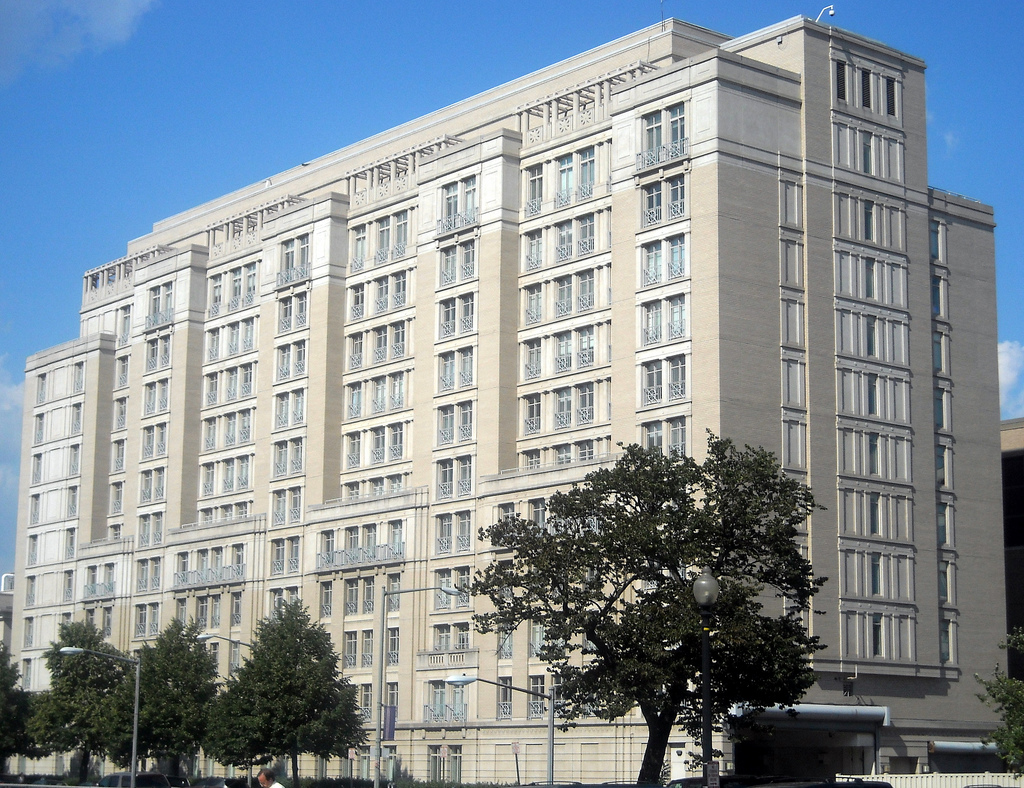Since the recession hit five years ago, the rise in family homelessness has gotten a lot of attention from city agencies and nonprofits.
Meanwhile, some single homeless men and women have been left with the feeling their problems aren’t being handled with the same urgency as those of homeless families. Now, a new project that pairs budding lawyers with indigent men and women aims to help single homeless people get the assistance they need.
The Community Justice Project at Georgetown University Law Center is a legal clinic where students act as advocates and directly represent social justice clients. For the fall semester, three third-year law students will be working with So Others Might Eat (SOME) to try to help unaccompanied, single adults in the District.
The Project asks the students to work with their homeless clients on creatively addressing the barriers they face in getting the help they need. The students will be focused on what resources exist for single homeless adults, how resources could be better used, and what obstacles single adults face when trying to access resources.
The project seeks to address some of the feelings of frustration expressed at a recent meeting of the Coalition of Homeless and Housing Organizations (COHHO.) Homeless men who attended the meeting voiced the feeling that city resources are largely focused on homeless families, leaving them at a loss.
Nechama Masliansky, SOME’s senior advocacy advisor and a co-convener of COHHO acknowledged that many resources have been directed at families since growing numbers of parents and children have turned to city shelters and programs for help. Family homelessness has increased almost 40 percent in the city since 2009.
The city’s annual homeless count, conducted in January, included a total of 3,169 men, women and children living in families.
But the count also included 3,696 single men and women.
Masliansky said she doesn’t think the members of one needy group should feel like they are pitted against the members of another needy group for limited resources. She hopes the Community Justice Project will bring attention to the challenge of helping individuals get the best possible services from existing programs.
“We don’t want to put the haves versus the have-nots,” Masliansky said. “Everyone needs more resources. But we’re going to look at how to better utilize resources for single adults.”
The project has many goals. It is hoped that it will succeed in raising awareness among policymakers about the needs of single adults in a way that will result in an increased number of shelter and transitional beds for singles, and also boost access to cost-effective resources to reduce overall public costs.
In addition, the program is geared toward giving advanced law students the opportunity to gain insights into the needs of the poor and to get first hand experience in advocacy and social justice work. Masliansky said the project is a unique chance for students to work directly with the individuals who stand to benefit from their research.
“The students will be able to broaden their skills through working with individuals affected by these policies,” Masliansky said.
SOME has asked that the students present a final project and long-term strategy for an advocacy campaign, including the fiscal years 2015 and 2016.
Masliansky said she believes the project comes at a crucial and exciting time when it comes to changes in resources for single homeless adults. The introduction of an Emergency Rental Assistance Program and Rapid Rehousing Program for seniors and the work of the city’s Interagency Council on Homelessness on an intake system for homeless adults will put a newfound focus on the needs of the demographic.
“There is now attention on three pieces of what would be a broad vision of having more robust resources for these individuals,” Masliansky said. “It focuses people’s attention on alternative resources and means of providing resources. This project will be in the forefront of that movement.”








